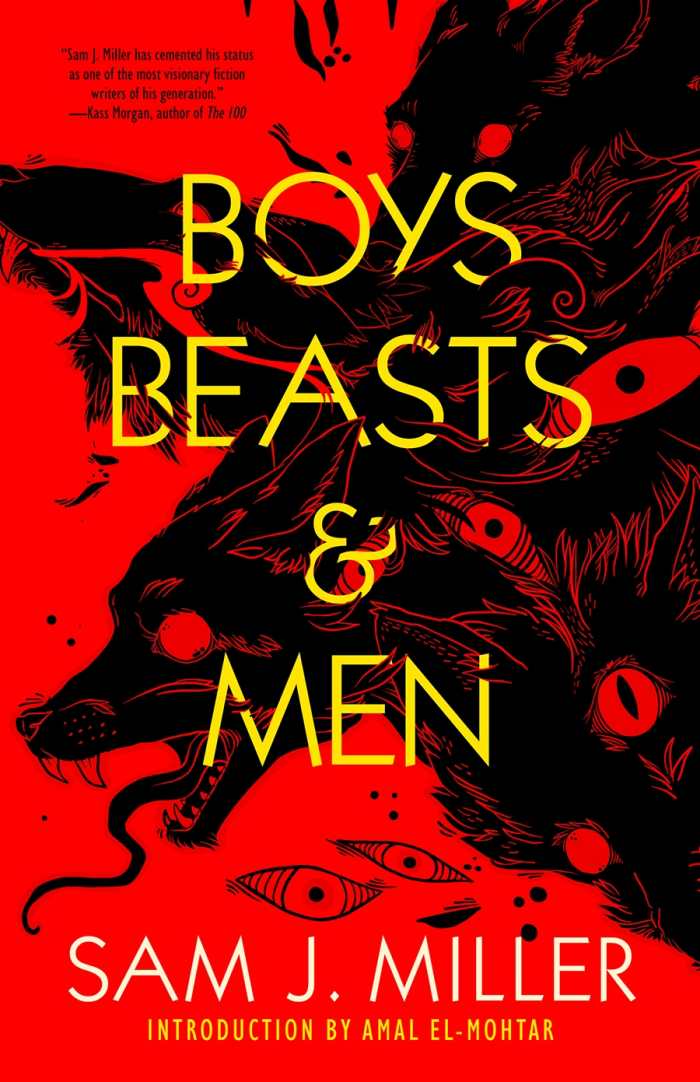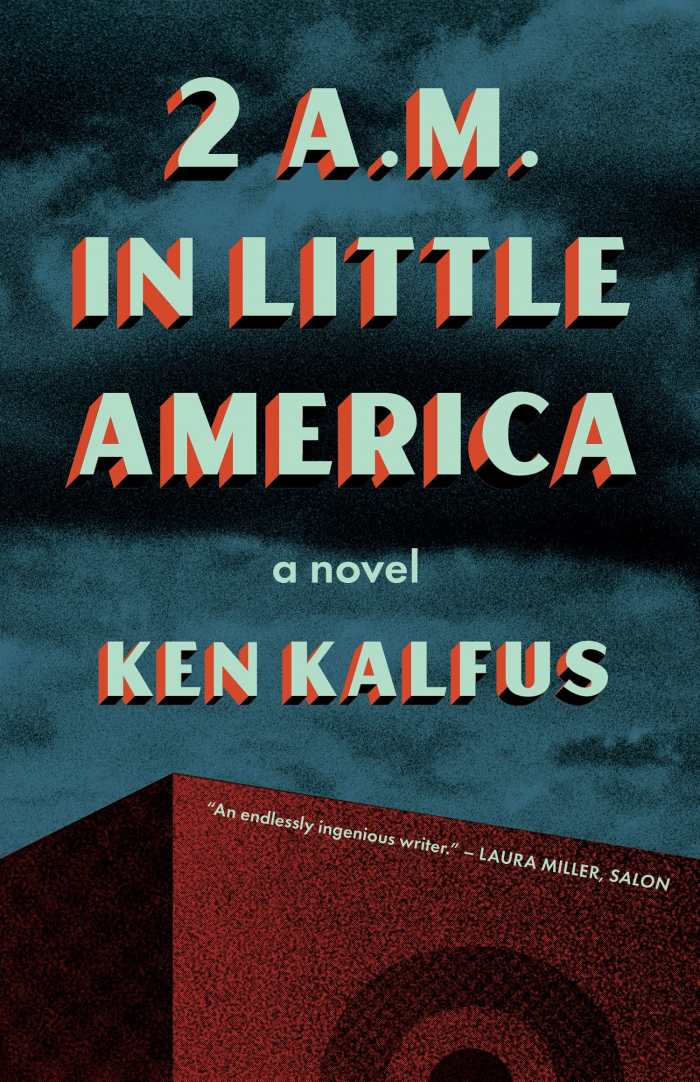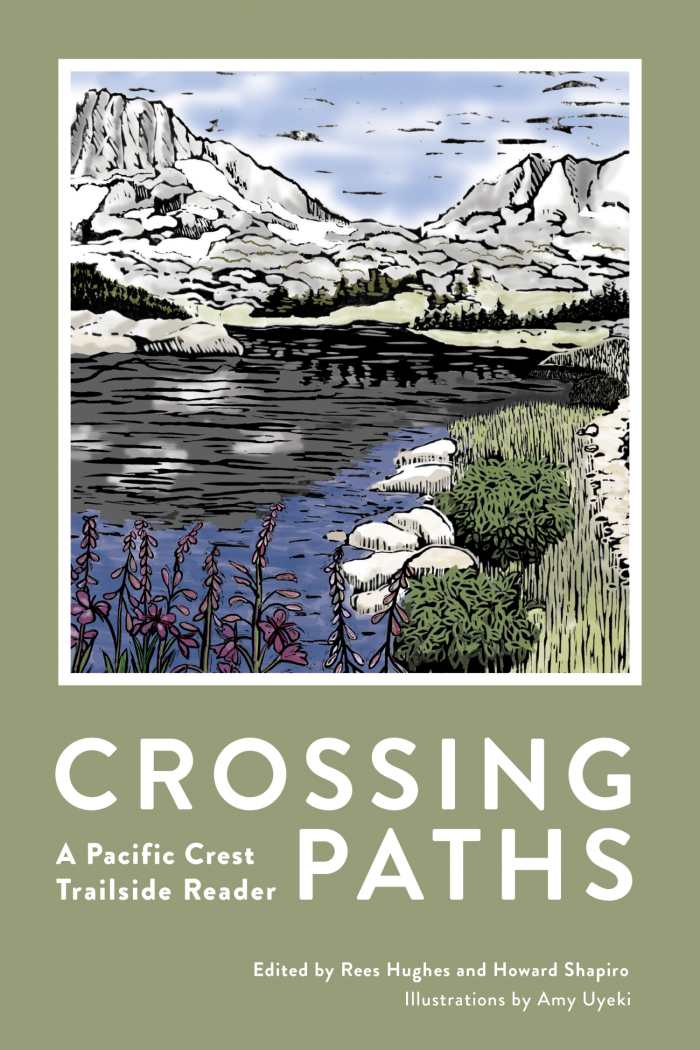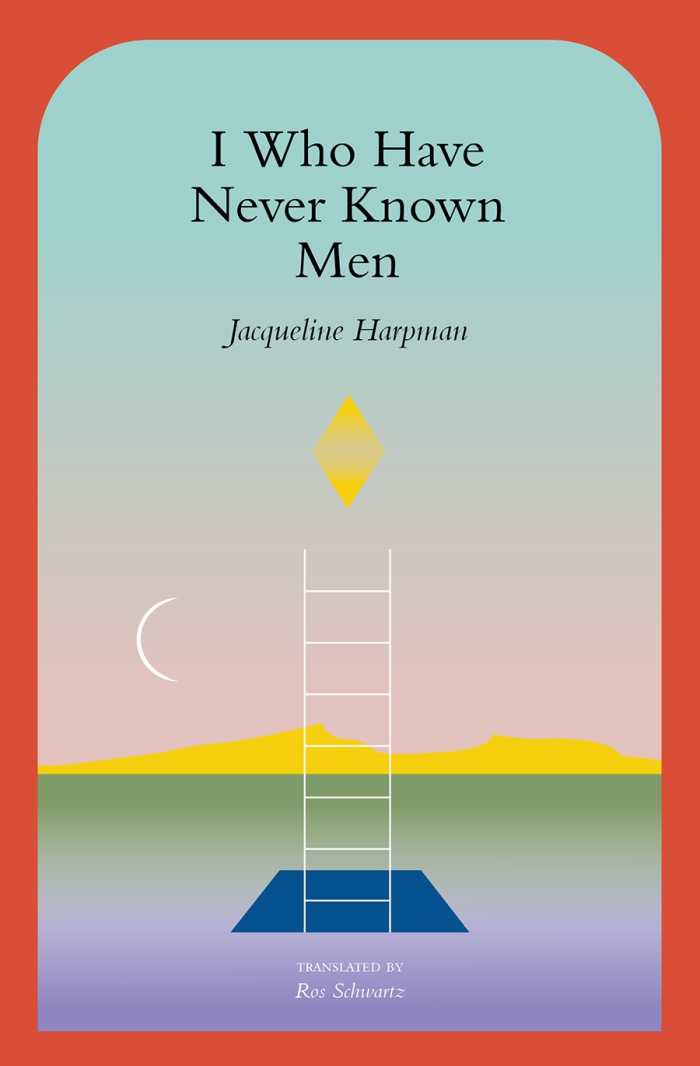Book of the Day Roundup: May 9-13, 2022
Boys, Beasts & Men

Sam J. Miller
Tachyon Publications
Softcover $17.95 (330pp)
978-1-61696-372-9
Buy: Local Bookstore (Bookshop)
The line between figurative and literal beasts is blurred in the inventive stories of Sam J. Miller’s Boys, Beasts & Men.
The book’s conjured funhouse worlds are both familiar and alien. Small-town family tensions are exacerbated by the discovery of a living dinosaur in “Allosaurus Burgers.” In “57 Reasons for the Slate Quarry Suicides,” a sensitive teenage romance descends into tragedy thanks to a display of superpowers. “Shattered Sidewalks of the Human Heart” posits a world in which King Kong actually existed, while “Things with Beards” is a sequel to the horror movie The Thing—as well as an allegory for LGBTQ+ identity in which aliens pose as humans. Even a comedic tale that chronicles the life of a sofa percolates with regrets for unfulfilled lives.
The book’s vigorous prose strikes a balance between imaginative twists, strong character development, and relatable dilemmas. Its most affecting tales resonate on both political and personal levels. In the dystopian “We Are the Cloud,” those whom society labels as unworthy rent out their brainpower to an all-encompassing Net. “The Beasts We Want to Be” is an unsettling vision of a militaristic society in which boys are bred to become actual monsters. And “The Heat of Us” reimagines the Stonewall Riots of 1969 as a telekinetic event in which righteous passions literally catch fire. In “Angel, Monster, Man,” three men live under the shadow of the 1980s AIDS epidemic, fooling the art community by “inventing” an artist who ends up being a lightning rod for LGBTQ+ rights.
Finding danger and humanity in their characters, the short stories of Boys, Beasts & Men marry emotional epiphanies with violence, resulting in imaginative, stirring meditations on LGBTQ+ struggles and acceptance.
HO LIN (April 27, 2022)
2 A.M. in Little America

Ken Kalfus
Milkweed Editions
Hardcover $25.00 (256pp)
978-1-57131-144-3
Buy: Local Bookstore (Bookshop)
Ken Kalfus’s novel 2 A.M. in Little America takes a disturbing plunge into a troubled future.
Before the US descended into violent chaos, Ron—fresh out of high school, indistinctive, and without a taste for factions or fighting—escaped. Now, he’s one of the innumerable American refugees scattered across the globe—both pitied and resented; futureless; the detritus of nationalist aspirations. He works menial jobs in hostile lands for less than the legal wage. He sometimes claims to be Canadian. And he waits—for what, he could not say.
But even as Ron aims for invisibility, hoping that anonymity will save him from expulsion, he meets Marlise, a fellow refugee who sometimes seems familiar, and whose story he yearns to be a part of. During Sunday walks along the water in a land where neither one of them belongs: Marlise becomes beloved to Ron. And then the passage of harsh anti-immigrant laws tears their lives asunder once more.
The novel navigates undefined spaces in a fevered, sinuous state, relocating Ron between nations and aging him by imperceptible decades. People ease into his sight with appeals to his past, but Ron is never certain of the legitimacy of their claims. He knows that politics are dangerous; he knows that nothing is forever. He witnesses world events as though he’s outside of them, and he remembers a teacher’s warning that facts can be distorted: our eyes and minds can lie to us—and do.
Though imperiled by re-emergent militias, a needful policeman, and the reappearance of another maybe-familiar face, Ron keeps on surviving, clinging to dreams of a home that no longer exists. As it progresses, his tale becomes a potent warning about the consequences of ideological fervor. Heartbreaking and sobering, the dystopian novel 2 A.M. in Little America has the makings of a modern classic.
MICHELLE ANNE SCHINGLER (April 27, 2022)
Crossing Paths
A Pacific Crest Trailside Reader

Rees Hughes, editor
Howard Shapiro, editor
Mountaineers Books
Softcover $21.95 (304pp)
978-1-68051-570-1
Buy: Local Bookstore (Bookshop)
The Pacific Crest Trail winds its way between the Mexican and Canadian borders, challenging and inspiring trekkers with its deserts and streams, dense forests, and rugged mountain slopes. In Crossing Paths, editors Rees Hughes and Howard Shapiro, both experienced PCT hikers, compiled a diverse anthology of stories and poems, each one relating a memorable experience.
Spanning the full range of human emotions, the collection shows how awe and wonder at nature’s beauty and majesty can morph into terror when one is dodging lightning bolts on an exposed mountain ridge, or courage when the sight of a mountain lion calls up feminine power in a roar to make the animal turn tail and flee. The PCT has also hosted a trailside wedding and a series of cello concerts, and has brought solace and healing after the trauma of war and life-threatening illnesses.
Enhanced by beautiful illustrations, the anthology testifies to human hunger for contact with the natural world, for a place where the noise of civilization ceases and inner messages can be heard; where the roughness of human conflict is replaced with the kindness of “trail angels,” and where solitary communion with nature dissolves strife and striving into the vastness of distant horizons. But the trail’s challenges also bring reminders of mortality.
The PCT faces its own challenges, and the book warns that its growing popularity can harm fragile ecosystems; complicate trail maintenance; increase wildfire risks; and destroy pristine landscapes with infrastructure development. These, and the devastating effects of climate change, put all that the trail is treasured for at risk.
Crossing Paths is an informative, enchanting anthology of stories and poems by Pacific Crest Trail-lovers who have met its challenges and been touched by its beauty, magic, and transformative power.
KRISTINE MORRIS (April 27, 2022)
I Who Have Never Known Men

Jacqueline Harpman
Ros Schwartz, translator
Transit Books
Softcover $16.95 (184pp)
978-1-945492-60-0
Buy: Local Bookstore (Bookshop)
Jacqueline Harpman’s I Who Have Never Known Men is a brilliant, spare science fiction novel in which a curious girl asks what remains after everything has been stripped away.
In the beginning, the girl is caged with thirty-nine women in a bleak underground bunker, tended by men guards with a boundless supply of food, water, and electricity. The women share fleeting memories of a time before; they don’t know why they were imprisoned, or where they are. With no attachment to the past, the girl feels like an outsider. She proves her value as the timekeeper, telling time by counting her heartbeats, and mirrors the passing years as she matures from a child to a woman.
When a siren sounds, the guards flee. The women free themselves with keys left, by chance, in the lock. They find that the world above ground is as sterile as their prison, a “boundless desolate plain, under a sky that is nearly always grey.” In this strange and barren place, the women build homes, care for each other, and search for other survivors. They also seek hints about the “insoluble mysteries” they face. They glimpse scant moments of beauty—a remembered hymn; the “changing shapes of the clouds, softly falling rain…slowly moving stars, and a few flowers.”
As the women age and die, the girl faces the future with the courage of a classic existential hero: “I felt the burden of the inexplicable, of my life, of that world to which I was the sole witness. I had nothing else to do in it but continue my journey.”
Translated from the French, I Who Have Never Known Men is a radiant, austere post-apocalyptic novel that poses profound questions about hope, surrender, beauty, loss, and the meaning of community.
KRISTEN RABE (April 27, 2022)
After Lambana
Myth and Magic in Manila

Eliza Victoria
Mervin Malonzo, illustrator
Tuttle Publishing
Softcover $16.99 (192pp)
978-0-8048-5525-9
Buy: Local Bookstore (Bookshop)
A noir set in contemporary Manila, the graphic novel After Lambana combines elements of magic with Filipino mythology.
Conrad has a terminal disease called Rose. He meets with a mysterious figure, Ignacio, who says that he can help. Ignacio is one of the Diwata, fairies native to a magical realm, Lambana, that once maintained open pathways and trade with human beings. Many Diwata still live in the human world, even after the path to Lambana closed a decade before. Through Ignacio’s connections, Conrad is given medicine to lessen his pain. During their travels together, the secrets of Rose, and the links between Conrad’s and Ignacio’s families, are revealed.
Showcasing traditional Filipino culture and a modern vérité style, much of the book’s appeal lies in the convincing way that the art and writing integrate city life with the presence of magical creatures. For example, social media accounts track the movements of doppelgänger “white shadows”; human laws restrict the Diwata, but can’t prevent romantic relationships and other complications from arising between them. Color is a key throughout, used to illustrate magical creatures, distinguish between settings, and contribute to beautiful, hypnotic images of city sights, like a rail car’s interior and an outdoor midnight bazaar.
A compelling story about the consequences of mistakes and the difficulties of redemption, After Lambana is a fascinating and memorable graphic novel.
PETER DABBENE (April 27, 2022)
Barbara Hodge
